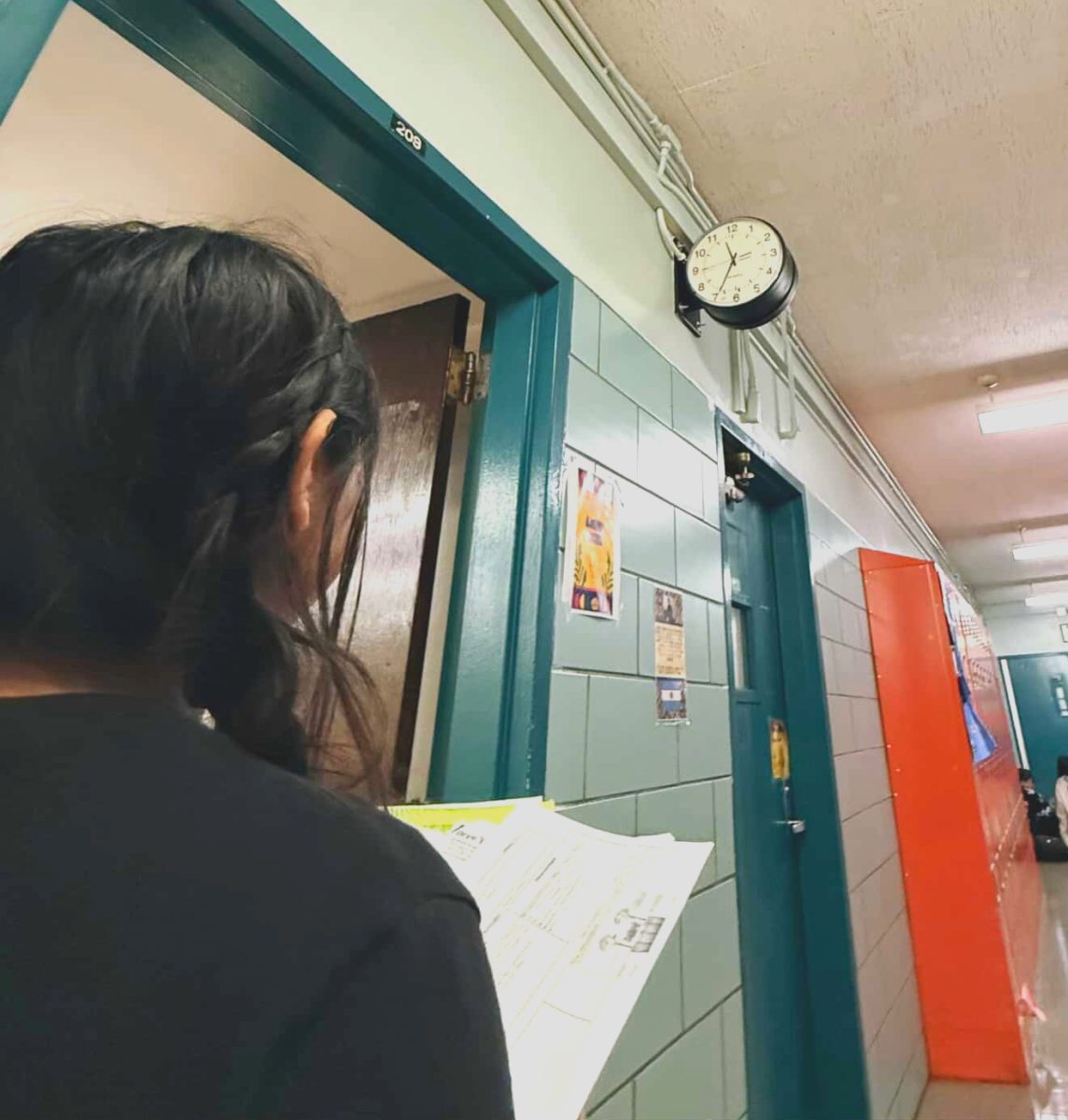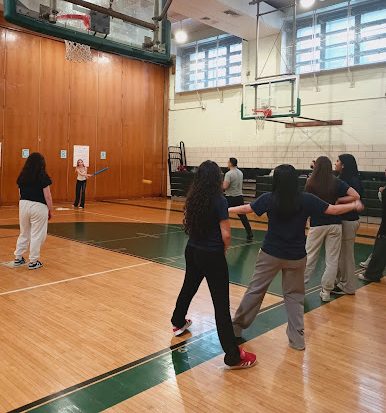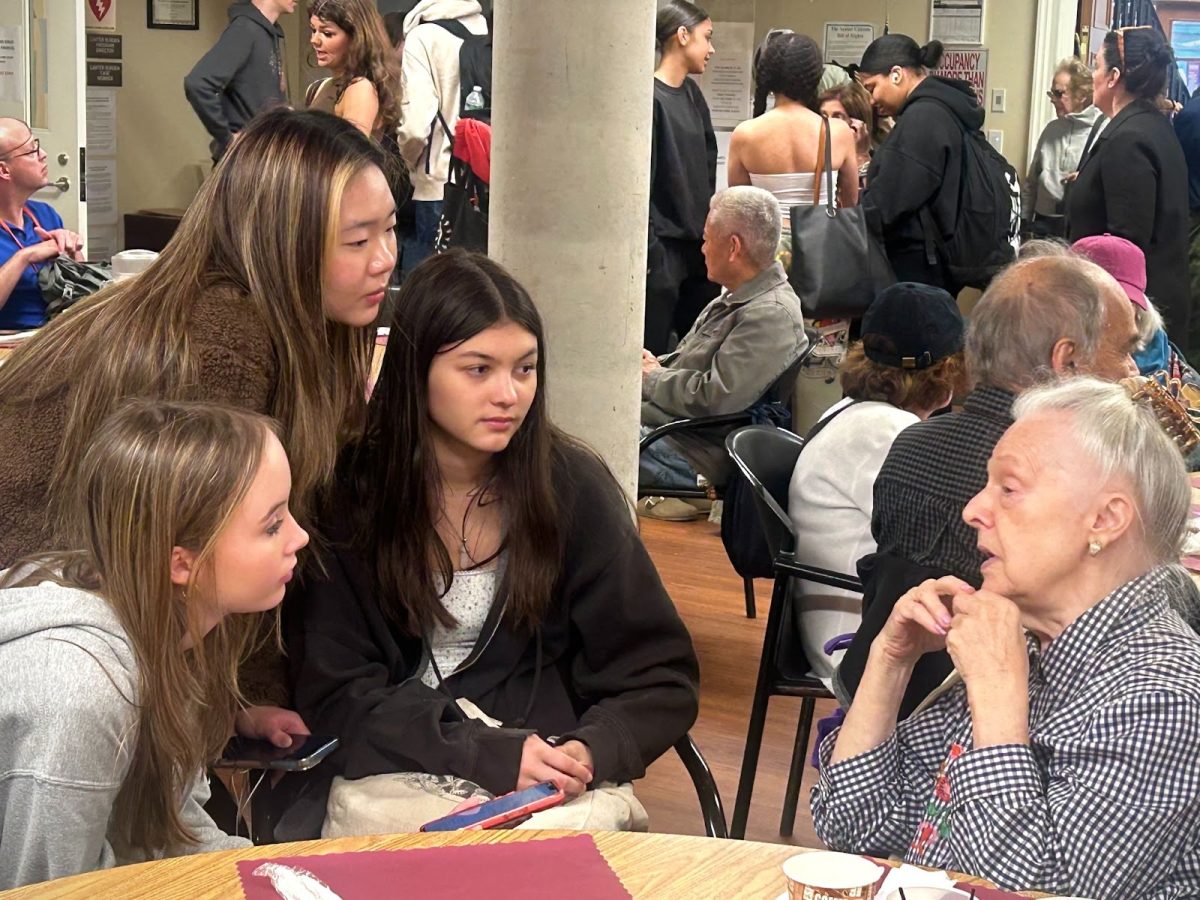As humans, sometimes we can feel stuck in a rut, especially in these winter months, when it’s “too cold to go outside.”It can be easy to just stay in bed or on the sofa and scroll endlessly on social media when you don’t have school. This puts your state of mind in a bad place, and you can feel lethargic and lack motivation to do anything. Then your lack of productivity makes you feel guilty, and you’re pushed further into that hole of sadness.
When you’re in that situation, it feels impossible to break out of that cycle. However, I have good news for you–it’s not! The best way to improve your motivation, mental health, and so many other things, is to get exercise.
Exercise has a massive impact on mental health. First of all, dopamine and endorphins are released when you exercise. These are chemicals that lower stress and improve your mood. Exercising can also help you control your emotions, so you don’t feel overly sad or irritable (which is what often happens if you’re sedentary all day). Aaron Leitner, an athlete and sophomore at Museum School, says “Overall, I feel like I have more energy. [The] tired goes away when I’m doing activities.”
However, exercise does more than just help you with your emotions and energy! Intense exercise can also greatly affect your sleep. Not only does it reduce the time it takes to fall asleep, but it also helps improve the quality of your sleep. Exercising increases your melatonin levels; melatonin is a hormone that regulates your sleep cycle, so it’ll help you get drowsy at night, ensuring you get a good sleep.
Exercise can also affect your academics. When you exercise, new synapses (which connect your neurons) form inside your brain that control your memory. Your memory function and capacity actually improve when you exercise. Jenna Schuster, a freshman on the LMU softball team (which is the reason she chose this school in the first place) says, “Being active in many ways can also help you academically, staying focused and being energized.”
It might feel hard to get up and start exercising, but here’s something you should know: the chemicals released in your brain when you exercise reinforce a positive feedback loop that makes you want to exercise more. Mr. Urbach, Museum School’s PE teacher, says that after doing intense exercise, “You release endorphins, [and] feel a sense of exhilaration.” The feeling of success that you experience after exercising makes you want to keep exercising in the future. In short, you just need to take that first step to begin your exercising journey. A study completed by the American Academy of Neurology shows that it takes around six months for the cognitive effects of exercising to become apparent, so make yourself a promise to keep on exercising even when it feels difficult.
Now you know the benefits of exercising, but you might still be wondering how to get that exercise. Well, there are different ways.
There are many types of classes you can take for exercise. You can join a school sports team, for instance. When asked what the benefits of joining a sports team were, Mr. Urbach explained “[There are] obvious physical benefits, but also mental benefits as well, and social benefits. You get to make friends, you get to exercise, you get to release endorphins, which helps you with your mental health.” Joining a school sports team is a really good way to make more connections with the school community while still exercising and working towards a goal.
You can also join gymnastics or dance outside of school, which are great options if you want to exercise but you’re not into the sports offered at school. Both dance and gymnastics have an artistic side, and you can participate in performances or competitions, but they still provide an immense amount of exercise each day. Swimming is also a unique way to get exercise, and you can either swim on your own in a local pool or join a swim team. You might want to sign up for martial arts classes like jiu jitsu or taekwondo and learn some self defense while you work out.
Yoga or Pilates are also great ways to join a community while engaging in exercise that’s not too cardio-centric. Both yoga and Pilates can alleviate stress and reduce anxiety and depression. You can take a yoga or Pilates class near you, or find a guided video exercise online!
If you’d rather not take a guided class, running (or jogging) is an excellent option. It increases your stamina, and you can basically do it anywhere– just run around your neighborhood! You can also get a membership to your local gym and use a treadmill, lift weights, or use the vast array of equipment they offer at your own leisure.
Exercise does not have to be a chore. While some people may feel a lot of excitement or a sense of accomplishment after exercising, it’s not everyone’s thing. If you actively dislike “working out”, then don’t! Go on a walk with a friend, or play Just Dance at home. I hope that this information was valuable and showed you just how much of an impact exercise can make on your life. Exercising is not a one hundred percent guarantee of success, of course, but it can certainly play a role if you let it.




























